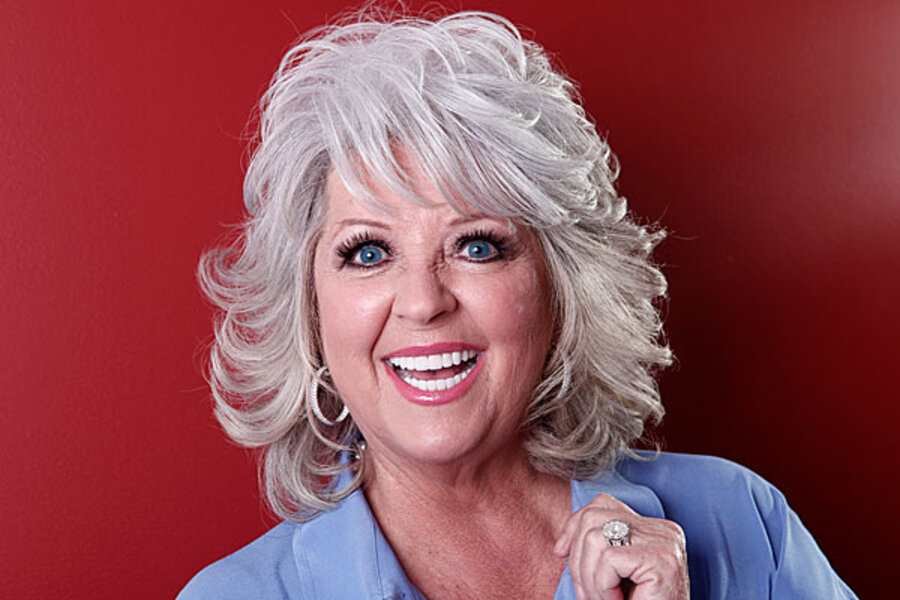Paula Deen lawsuit: How often does she use the 'N' word?
Loading...
| Savannah, Ga.
Celebrity cook Paula Deen said while being questioned in a discrimination lawsuit that she has used racial slurs in the past but insisted she and her family do not tolerate prejudice.
The 66-year-old Food Network star and Savannah restaurant owner was peppered with questions about her racial attitudes in a May 17 deposition by a lawyer for Lisa Jackson, a former manager of Uncle Bubba's Seafood and Oyster House. Deen and her brother, Bubba Hiers, own the restaurant. Jackson sued them last year, saying she was sexually harassed and worked in a hostile environment rife with innuendo and racial slurs.
According to a transcript of the deposition, filed Monday in U.S. District Court, an attorney for Jackson asked Deen if she has ever used the N-word.
"Yes, of course," Deen replied, though she added: "It's been a very long time."
Asked to give an example, Deen recalled the time she worked as a bank teller in southwest Georgia in the 1980s and was held at gunpoint by a robber. The gunman was a black man, Deen told the attorney, and she thought she used the slur when talking about him after the holdup. "Probably in telling my husband," she said.
Deen said she may have also used the slur when recalling conversations between black employees at her restaurants, but she couldn't recall specifics.
"But that's just not a word that we use as time has gone on," Deen said. "Things have changed since the '60s in the South. And my children and my brother object to that word being used in any cruel or mean behavior. As well as I do."
William Franklin, Deen's attorney, said the celebrity was looking forward to her day in court.
"Contrary to media reports, Ms. Deen does not condone or find the use of racial epithets acceptable," he said in a statement.
Attorneys for Jackson did not immediately return phone calls Wednesday seeking comment.
Plenty of people were already judging Deen on social media sites Wednesday. One of the top trending topics on Twitter was #PaulasBestDishes, the name of her Food Network show. Tweets used the tag along with satirical names for recipes such as "Massa-Roni and Cheese," ''Lettuce From a Birmingham Jail," and "Key Lynch Pie."
Station spokeswoman Julie Halpin said in a statement: "The Food Network does not tolerate any form of discrimination and is a strong proponent of diversity and inclusion. We will continue to monitor the situation."
The civil suit was filed in March 2012 in Chatham County Superior Court and was transferred to federal court a few months later. Deen and Hiers have both denied the allegations made by Jackson, who is white.
"Bubba and I, neither one of us, care what the color of your skin is" or what gender a person is, Deen said in her deposition. "It's what's in your heart and in your head that matters to us."
Known for her sometimes ribald sense of humor as well as her high-calorie Southern recipes, Deen acknowledged in her deposition to sometimes telling jokes. She seemed to struggle when asked if she considered jokes using the N-word to be "mean."
"That's kind of hard," Deen said. "Most jokes are about Jewish people, rednecks, black folks. ... They usually target, though, a group. Gays or straights, black, redneck, you know, I just don't know — I just don't know what to say. I can't, myself, determine what offends another person."
Jackson's attorney, Matthew Billips, also pressed Deen to explain whether she had once suggested that all black waiters be hired for her brother's 2007 wedding.
Deen said she once mentioned the idea to her personal assistant and Jackson but immediately dismissed it. Deen said she had been inspired by an upscale Southern restaurant she and her husband had visited in another state.
"The whole entire wait staff was middle-aged black men, and they had on beautiful white jackets with a black bow tie. I mean, it was really impressive," Deen said. "And I remember saying I would love to have servers like that, I said, but I would be afraid that someone would misinterpret (it)."
Asked if she used the N-word to describe those waiters, Deen replied: "No, because that's not what these men were. They were professional black men doing a fabulous job."
Copyright 2013 The Associated Press.





